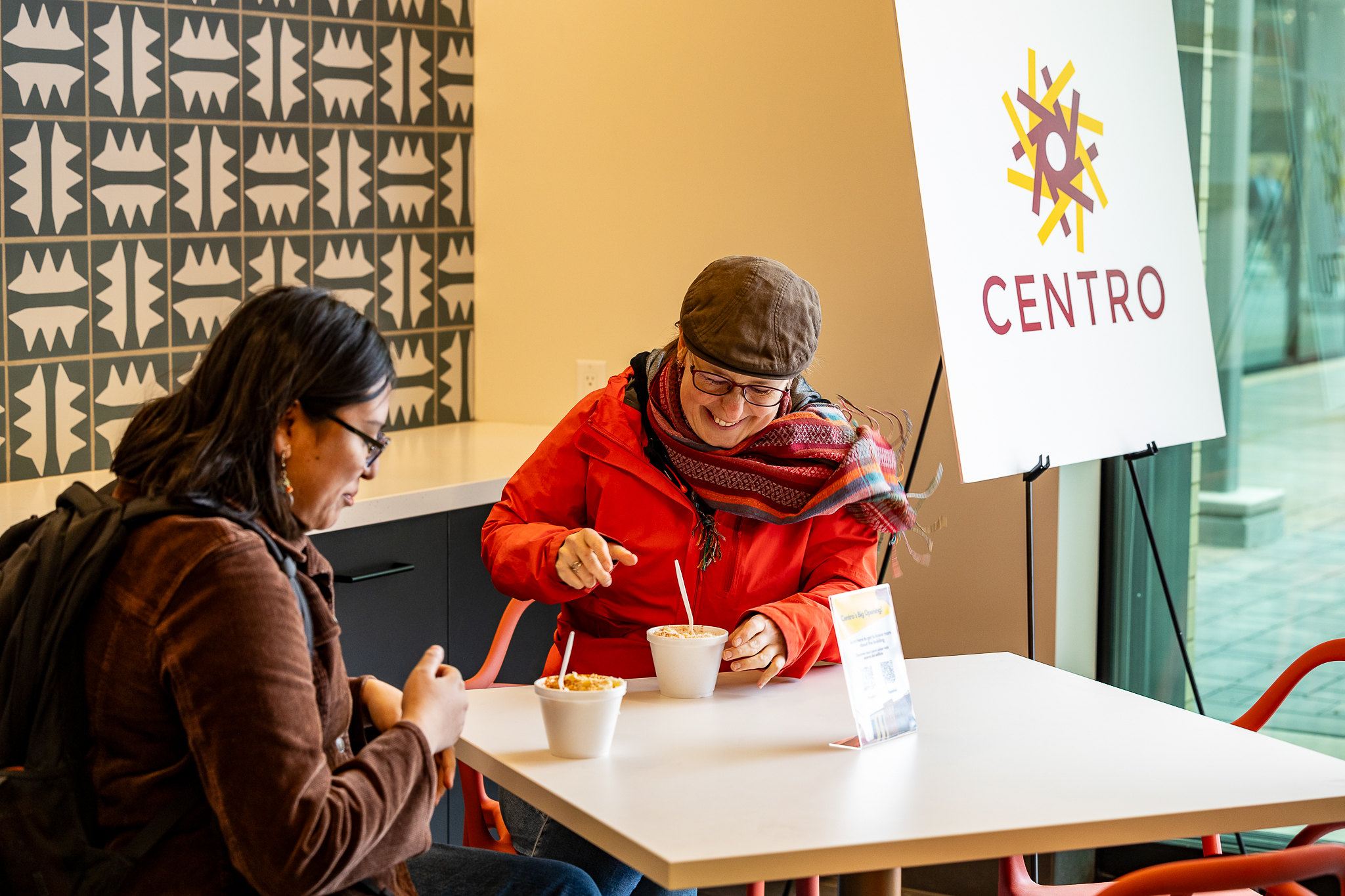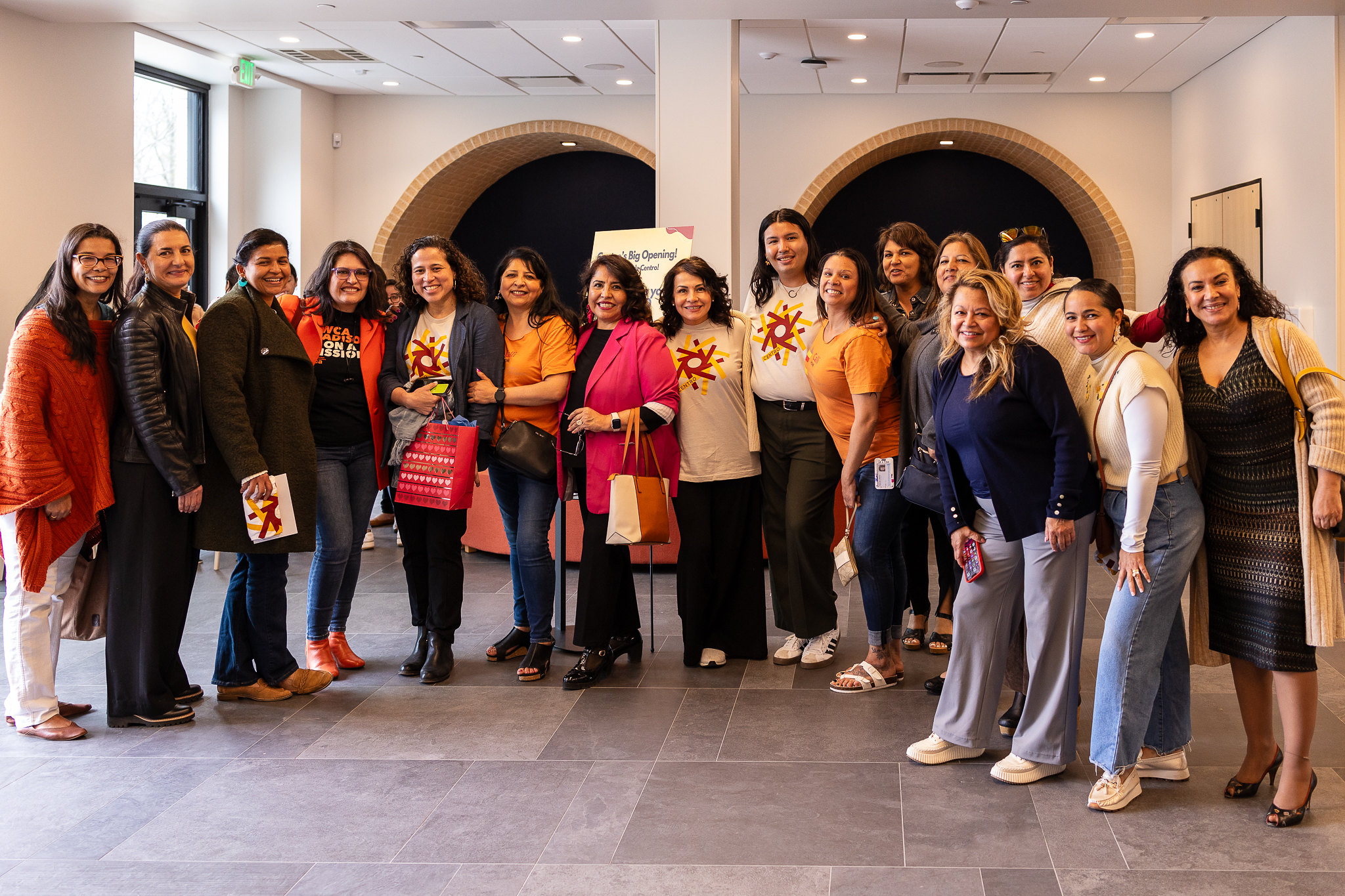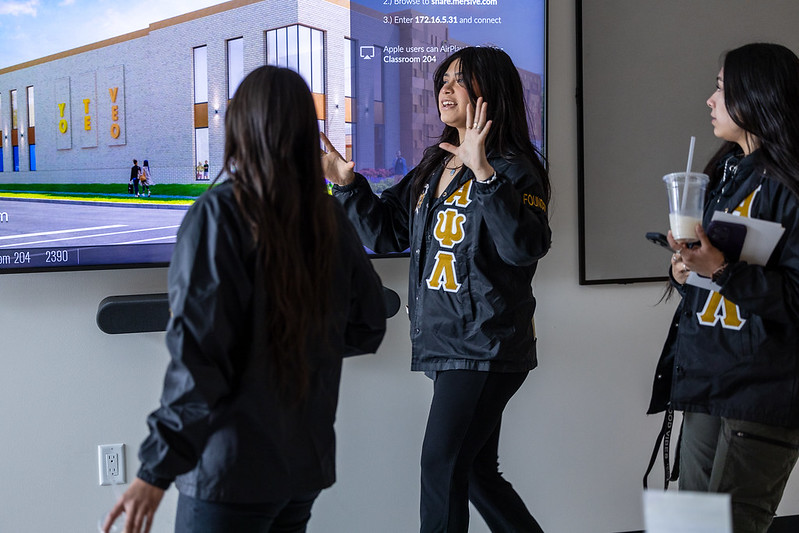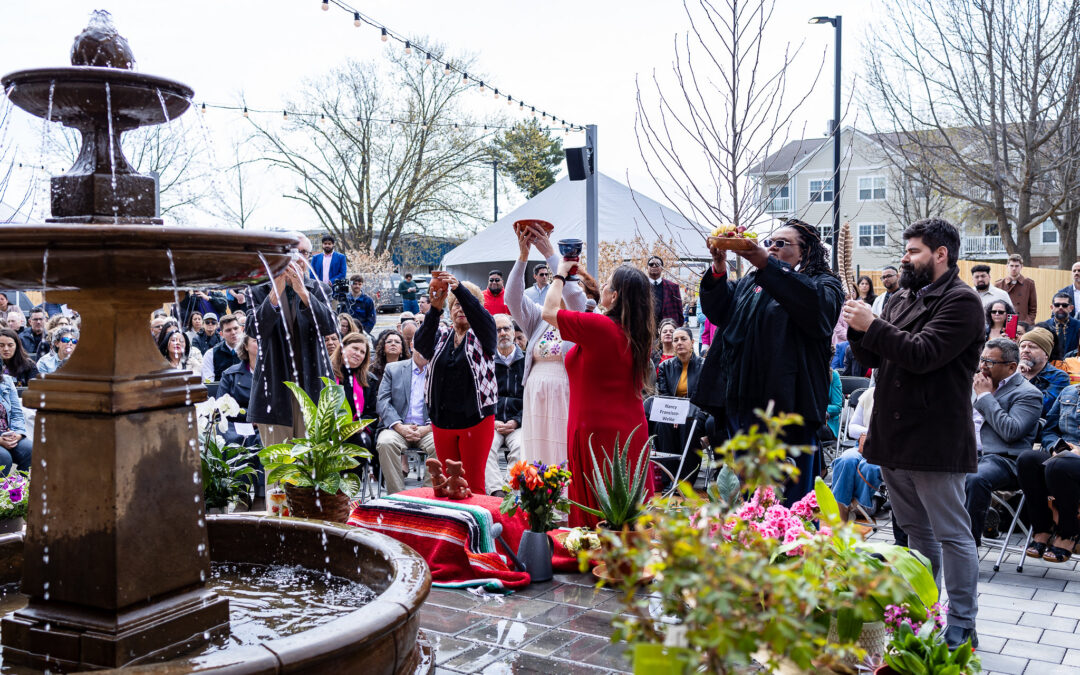All photos by: Heidi Rudd
Karen Menéndez Coller is a mother, daughter, and community leader. Born in El Salvador, she and her family moved to California when she was 12 years old. Her husband, a Green Bay native, and their two children have called Wisconsin home for the past 10+ years and are “pretty proud of it, too.” She is the Executive Director of Centro, a nonprofit serving Latinx in Dane County.
Despite leaving El Salvador at a young age, Karen said, “I grew up very being very cognizant of my history and my heritage and the role that sustainability plays in the lives of immigrants when we come here. I think, for a long time, it’s been pretty clear to me that almost everybody at Centro, like me, has been impacted by climate change issues globally. And a lot of us ended up here affected by that.”
Over the past ten years, Centro has tripled in size, now serving close to 10,000 individuals. As the demand for services increased, their old space became insufficient.
This April, the organization unveiled its new building on the south side of Madison. This space tells the story of how community, sustainability, and change intersect in the foundation of their building.

Creating a Safe Space for Latinx Families
Centro was founded in 1983 to provide services to Dane County’s Latin American community. Its mission is “To become a County where Latinx families can aspire upward to reach personal and professional goals while feeling engaged and strengthened with the tools for success.”
“We support an immigrant Spanish-speaking community that’s not supported by [existing] systems. They try, but they don’t know how to help. They don’t understand us as much. So we’re there [to support] as much as we can,” said Karen.
Karen describes Centro as incredibly collectivist in the way it operates, and the team approached the building design in the same collaborative way.
“Everything has been vetted very carefully. We saw the people that were involved as us. We saw ourselves in them. And so that’s how we found the architect, the furniture installers, the designers, everybody was very collective,” said Karen. “So in the process of creating this building, we spent a lot of time healing.”

Making the New Building Feel Like Home
The inspiration for the new building was simple. Centro wanted its community members to feel at home. To achieve this, Karen and her team collaborated with architects and interior designers to incorporate materials native to Latin America into the building design.
“When you walk in, the reception desk is wrapped in lava stone, which is incredibly significant for the Latin American community. It represents fire and strength. This is the first thing that people see when they walk in. We want them to know that this space was designed with them in mind.”
The decision to keep the space open and bright was intentional, especially for sustainability and education. The floors are reminiscent of cement homes in Latin America. Homes that have status, have cement. “That’s what we want our families to feel.”
“We’re talking about getting a drone so that we can take live shots of the solar panels. There’s some rain gardens out in our exterior plaza that some of our staff and young people are going to upkeep and maintain. That’s been a wonderful way to engage the community. We have geothermal, we committed to that because we believe in the power of the earth and trying to get energy from the earth to sustain us. This building is fully electric and we have windows everywhere,” said Karen.
Her vision is for the families to look outside, see the seasons, and ask about the solar panels and geothermal installation. The goal is to incite curiosity about the different aspects of the building. The design highlights sustainability and forces the community to consider ways to incorporate it into their lives. For example, the building is near a trailer park that houses some community members. This prompted a conversation about solar panels on mobile homes and how to make them affordable.
Karen has learned a lot throughout the process.
She said, “The team wants to know more and more. I’m proud that this [building] is on the south side. And I think that our families are going to be able to see it in a very organic way. It’s not a thing that people bring in, it’s just there to be a part of it.”

When in Doubt—Dream
When asked if she could give one piece of advice to organizations looking to create a space that is environmentally sustainable and culturally significant, Karen said, “You just have to start. It’s not as hard as you think. I never feel at Centro that there’s limitations. We’ve got to find the funders and connect with people that understand us, and that allow us to come first,” said Karen.
For Centro, the idea of a new space has been ten years in the making. The details were not flushed out, but they knew they wanted something bigger and more functional than they had in the past.
“In the end, we have nothing to lose on the outside. So many people haven’t cared about our families. And so what do we have to lose? We just have to kind of dream,” said Karen.
Centro’s dream was supported by Wisconsin’s Focus on Energy program, RENEW Wisconsin’s Solar for Good Program, and the City of Madison’s Backyard Solar Grant. In addition, they are expecting over $600,000 through the Inflation Reduction Act’s Direct Payment. This will offset 30% of the cost of their geothermal system and 40% of their solar system.
Centro had always been strategic about the partnerships that they built and the relationships that they have nurtured. When the time came for fundraising, Karen found they had the support of the Dane County Executive, the Madison Mayor, and the Governor. She credits the authenticity of the organization and the relationships they’ve built as the key to success.
“We have a really strong partnership with the director at the Office of Environmental and Climate Sustainability. The Director, Kathy Kuntz, and I are like-minded. She’s always trying to break into communities of color with her work,” she said. “I always try to tell her that it’s easier than you think, you just have to understand our history and what drives us here.’”
For the team at Centro, the drive for this project was to feel connected with the space, the land, and their ancestors and to honor that through environmentally sustainable practices, which is exactly what they did. Ten years seems like a long time to dream and plan, but Karen said, “It’s worth it. It’s valuable. It feels like we’re honoring all the people who are still in El Salvador and other parts of the world that are not here. And we’re saying we’re going to do our part. So that hopefully, it’s a little bit safer and more sustainable over there.”

